|
This past fall I jumped into a business book study with several of my co-workers using a leadership book that I’d never read before. Turns out that Wooden on Leadership was chock full of excellent thoughts and ideas that were both applicable to our individual lives and to our company. What’s especially remarkable, though, is what happened because we did the study together. Here are three results:
Now the small group that meets in our home on Saturday nights is looking for a study. It's a demanding task: What will meet our various needs? What will help us take practical steps forward in following Jesus? What will give enough structure that we'll have fodder for discussion? What will enhance Biblical thinking? What's probing enough to help us make application without spoon-feeding surface-level answers to complex, nuanced issues that we face? I don't know where we'll land when we meet tomorrow afternoon to discuss, but one thing is for sure: By studying together—whatever it is—we'll profit. If you'd like to try Seeing the Invisible as a study, I'd love to hear from you!
1 Comment
Seeing the Invisible (E-book version) is 50% off December 16-22!
"Simple, profound ideas for living life in fellowship and harmony with Jesus Christ. Practical ways to live in the presence of God and experience His power in our lives." —a recent reader-- I'm happy to offer the digital version of Seeing the Invisible half-off in the days preceding Christmas! If you know someone who is looking for more in life—more hope, more meaning—this book could be just the right gift @ https://amzn.to/35spkW0 If you prefer paper to digital, you can still get a hard-copy delivered before Christmas @ https://amzn.to/2RU41Zo If you are reading Seeing the Invisible I’d love to get your review @ https://amzn.to/2RU41Zo or feel free to message me directly @ [email protected]. Merry Christmas! ...if you have had a vision of Jesus as He is, experiences can come and go, and you will endure 'as seeing Him Who is invisible.' —Oswald Chambers-- What power is great enough to turn abject terror into indomitable courage?
Moses tapped into that dynamite as he stood before the king. The world's most powerful man. Who was infuriated. With Moses. Here's the deal: Moses didn't just see the angry king—Behind the king Moses saw the King of kings, the Invisible God. His natural fear (this man could kill me with a snap of his fingers!) was replaced by supernatural faith (but he can't do anything to me without a word from my King!). That's real power, the power to endure anything anyone can hurl at me without flinching. God is here. Seeing God isn't just for fearful people who need endurance. It's for angry people who need to forgive but don't think they can. It's for doubting people who don't think they can believe, for depressed people who don't think they can leave their darkness behind, for distracted people who don't think they'll ever do more than wander the meaningless maze of busyness. It's for anyone who knows they need change, for anyone who longs for power to live transformed. It's a truth as old as the hills and as strong as the mountains. I'm excited to share this truth that's transforming my life in my newly released book Seeing the Invisible @ https://amzn.to/35dgjAf. Did I mention that I'm excited?—excited for you to experience the truth that's changing me—excited for you to see the Invisible. Seeing the Invisible is currently available in Paperback or Kindle @ https://amzn.to/35dgjAf—and, through the end of October, if you purchase the paperback version and want to have the book on your phone or tablet too, you can purchase the Kindle edition through Amazon's Matchbook program for only $2.99. (The Matchbook program is being eliminated on Nov. 1.) To get the Matchbook deal, complete your order of the paperback copy, then return to the Seeing the Invisible book page on Amazon and order the Kindle version by clicking "Matchbook." "What happened to your Insta?" Ella texted last week. "Your handle is [a foreign-sounding name] now?"
I tapped my app and couldn't even get into my account. My username, password, e-mail address, and phone number were no longer recognized. I was horrified: My account was to me a photo journal, a pictorial overview of seasons and ideas, of kids and events. Last Christmas we popped my Insta up on the big screen in the living room and scrolled through highlights of 2017 as shared with family and friends over the course of the year. The big ice storm in February? It was there. The Father's Day airplane ride through the clouds with pilot Ella? Our anniversary and our kids blowing out candles? All there. And now, all gone. I started frantically attempting to contact Instagram, reading on how to contact Instagram, and what other people did who had a similar experience. Since I could still view the account through my daughter's login I could see that the photos were still there and over the next couple of days I took screenshots of every page. Not great, but better than losing the entire photo chronology and the words telling what each pic meant to me. At last a glimmer of hope: Instagram contacted me back. I followed directions, took a picture of myself with a hand-written code, e-mailed it to their support team and waited. Late last night I got the final clearance: I could log back in and reclaim my account! I sat on the edge of the bed this morning, followed more directions, and... ...all that was left were several pornographic profile pictures. The account was an empty shell. Just earlier this week I was reminded of William Carey's tragic loss in a fire. The pioneer missionary, who had already given up so much to follow God, lost all his Bible translation work—the labor of years—in a single night. He wept and wrote, “In one short evening the labors of years are consumed. How unsearchable are the ways of God. I had lately brought some things to the utmost perfection of which they seemed capable . . .” Why would God waste years of arduous effort? Didn’t He want His Word to be given to the needy people of India? Carey concluded, “The Lord has laid me low, that I may look more simply to Him.” And he started over. My loss is nothing compared to Carey's, but it's still huge to me. It feels like I've been robbed. And like Carey, my option is clear: "look more simply to Him." It's His story I'm telling and if it pleases Him to obscure a chapter for now, that's best. I can start over. The great thing God so often reveals through loss is that He is less concerned about what I produce for Him—and more concerned about me. He does not look at His people merely as machines for the purpose of accomplishing a job; He looks at His people as people—people He loves so intensely that He won't even let work for Him get in the way. He's building something spectacular out of loss: a kingdom where no moths or rust or thieves—not even hackers—can diminish the splendor of His workmanship or steal His gold. © Copyright September 2018 by Robert G. Robbins Melissa and I joined fishermen and tourists and sun-hungry locals on a Saturday date-time this morning, threading our way along the water's edge at Bellingham Bay past high-end establishments and old warehouses. Life is a collision of worlds here where sky and sea and land combine, where the shouts of a warehouseman crash into the silence of unusually still sea air, resting before winter gales. A collision? Maybe it's more like a symphony, a unity of sunshine and cold water, of noise and silence, of gray sheet metal and shiny glass facades. A unity, but not a unison—life here along the shore is a polyphony, a hundred melodies joined in one great song: The little red fire boat sings out "I'll protect" while the fishing boat just beyond intones "I'll provide." The railway behind me announces "I'll carry" and the older couple with their Basset hound, sitting on a bench facing the sea exclaim "I'll enjoy." The sweat of the laboring man and the crab pots and the nets and buoys provide the deep rhythm "I'll work" while the houses on the bluff, peering out at islands across the water simply say "I'll live." That's what we're doing here, Melissa and me. We're living out our own unity. More accurately, we're walking together to build our unity while we're living out this day. Life feels like a collision of worlds much of the time: last night's sleep-over at our house mingles with someone off early to work, others off to town, still another headed to school for driver's education already this Saturday morning... And that's just the beginning. That's just what's going on outside. On the inside, where we live most intensely, we're a hundred ideas and disappointments and longings. Our minds are crowded with the colorful ballads of the past and the anthem, the ethereal song of what we hope life yet may become. Holding hands, we thread our way along the breakwater between yesterday and tomorrow, straining to hear above the caffeinated rhythm of today the unity of that joins many melodies into a symphony, to hear something more than just "I'll work", "I'll protect", "I'll carry", "I'll provide", "I'll enjoy", or even, "I'll live". We have to tune and re-tune our hearing as we walk along the rocky shore where water and sky and land unite. In these quiet moments together, we begin to catch it—at once pure and high and rich and deep, throbbing with power and tender as a mother's caress, a snatch of the Great Song that unites all the songs of all the seasons and all the the ages of life. "I'll love." #1Corinthians13 © Copyright October 2017 by Robert G. Robbins
Are you angered and grieved by the senseless killing in Las Vegas last night? You should be. Justice and mercy demand such a response when bad and evil things befall our fellow men. But that's not all real righteousness requires. In one of the only times Jesus addresses current events during His ministry He speaks to senseless tragedy. "There were some present at that very time who told Him about the Galileans whose blood Pilate had mingled with their sacrifices. And He [Jesus] answered them, 'Do you think that these Galileans were worse sinners than all the other Galileans, because they suffered in this way? No, I tell you; but unless you repent, you will all likewise perish. Or those eighteen on whom the tower in Siloam fell and killed them: do you think that they were worse offenders than all the others who lived in Jerusalem? No, I tell you; but unless you repent, you will all likewise perish.'" Luke 13:1-5 Jesus doesn't end His response with the appropriate anger people justifiably would have felt at Pilate's blood-letting. He doesn't conclude with the wails of mourners grieving the loss of people who were in the path of destruction when the tower fell. Instead, He takes us all the way back to the basic problem: Because sin entered the world in the garden, we live with death and evil and and every kind of catastrophe. The people who suffered in these two headline events were not extreme sinners: They were just sinners like you and me. Jesus presses the point home: Death is coming for everyone; no one is exempt. Tragedy is part of the standard equation in a world under the curse of sin. But rather than advocating a stoic stiff-upper lip or giving a flippant nod of His head to fatalism, Jesus says that the fury and the horror and even the fear should drive us beyond to one thing: Repentance. We are no more righteous than the victims of Pilate's brutality or those on whom the tower fell. We're no better than those senselessly murdered in Las Vegas last night. We're subject to life in a sin-cursed world—but we aren't living for this world. We're living for the world to come where no evil ever gains entrance and where the curse of sin is banished forever. Since nothing evil enters there it only stands to reason that when we taste the salt tears of our fellow men we would tighten our embrace on the death of all our wickedness by clinging to Jesus' cross. That when we encounter human tragedy we would feel afresh the pains of our own need to repent. That repentance which spells death to our sin simultaneously spells life forever. Because Jesus died—because we died with Him—we have the capacity to pour out His rich, red, healing life in deserts of anguish and pain. Speed justice, support the grieving—and walk humbly with God. Repent. © Copyright October 2017 by Robert G. Robbins
It's not the showy florets of the hydrangea that carry on the life of the plant, but when someone says, "hydrangea blossom" that's what almost always comes to mind.. And why not? Mounds of watercolor shades ripple with undulating hues. Complex tints tinge shadow with rainbow light. I'm looking out the window as I write, enjoying hillocks of blue beneath the trees in front of our house. I love what I can see. But what I can see is only a small part of the story. It's really the tiny hydrangea flowers that are fertile, capable of taking the work of the hydrangea to the next generation. These little stars are beautiful in their own right, but they're small enough and inconspicuous enough that they're often overlooked. They're dwarfed by the richly-colored florets, their sterile counterparts. Which part of the flower is more important? That's hard to say, because each fills a special role in the life of the hydrangea. Frankly, I probably wouldn't grow many hydrangea plants if they bore only tiny, almost insignificant star-flowers. But then, the hydrangea family wouldn't have grown to what it is today—and might have died out entirely—if there were only colorful, sterile florets. What's most important to God? That's a little like asking whether he likes brown hair better than blond or gray. He made them each for a purpose—and their individual beauties shine brightest when their purposes are most fully realized. Perhaps it's best to simply ask, "Am I fully living the purpose of God for me?" I'm thinking a lot about purpose these days as Melis and I wrestle with the question, "Where to now, Lord?" Last week, she challenged me to write up my purpose statement: "What is it that God is calling me to?" I tapped out a few starter thoughts, realizations that have been dawning like a very slow sunrise for many years. It's strange, when you've travelled down the path of life long enough to know that the things we usually call "callings" are generally just manifestations of the real calling, that we can't just say, "I want to be a firefighter when I grow up" and be satisfied. We have to address the God-built passion that drives us to pursue a particular path because the path itself is not the end: It is the means to the end, one way to achieve the purpose. So if we fail out of firefighter training or get injured and can no longer join the crew when the fire bell rings, it is not a negation of the calling. The calling, like a river, must find a way. Log jams and mud slides will divert the course, but the river rolls on. It's equally strange—and doubly disconcerting—to realize that the fulfillment of the calling does not necessarily spell recognition or approbation, at least not from anyone but God. It's a well-worn truth, but one that I somehow need to hear again and again; It's the story of the hydrangea blossom. What if no one does care about the work we're doing, the purpose we're fulfilling, the part God has given us to play in His kingdom? No matter: We're called to fulfill our purpose, not the purpose of someone else. They may get applause—they might even get credit for what we've done—but the God who gave us our specific purpose knows, and He rejoices that we've obeyed Him in fulfilling His calling. Somehow, in the great scheme of the eternal plan, our part is significant, not because anyone else understood, but because it mattered to God. It's little wonder, then, that King David longed to fill up his purpose in the kingdom of God. Doing what he was made to do was the only place where he would know real satisfaction. He couldn't be satisfied with less, even if less looked like more to other people. But David also knew that even though he was uniquely gifted and specifically called, he was not big enough or strong enough or wise enough to do what he was called to do. "The Lord will fulfill His purpose for me," he reminds his soul in the face of personal inadequacy. The Lord who called is the Lord who will fulfill the call. "His steadfast love endures forever," David continues. "Do not forsake the work of Your hands" (Psalm 138). To say it another way, "If You don't come through for me, Lord, nothing I can throw at life will make any difference. You are my only hope. Your love is the only constant in my ever-changing world." What will I be when I grow up? Seems like I should have answered that question about thirty-five years ago, and, in one sense I did: I found something of the essence of what God wanted me to do, it's just the way He has done it that has surprised me again and again. At fifty, I'm still asking, "Where to now, Lord?" And I'm believing that the God who called is the God who will fulfill His call even if no one else understands. Even if I don't understand. What matters to God is that we obey Him: He will fulfill His call because He cares even more about it than we do. It's His kingdom that's at stake. © Copyright August 2017 by Robert G. Robbins
I ran the plumbing snake down the tub drain in hopes that I'd knock something loose or pull enough debris out to speed it up. Result? Far slower than before. Hopefully it will drain by morning, I thought. "Well, I've done enough damage for the night," I grumbled to Melis in disgust. And I headed for bed. It had dissipated by the time I poured a morning bath. I punched the little lever, and with a gurgle the water circled into a whirlpool and rushed down the drain. Nothing was different. Nothing had changed. Well, nothing I did was different; I hadn't changed anything. Was it something wrong with the mechanism? I don't know, but I've seen God work in such extravagantly practical ways before with no explanation, only a smile. Thank you, Lord, for turning a plumbing problem into a place of praise. #gladforgoingdownthedrain © Copyright August 2017 by Robert G. Robbins
Where there is no window to the world outside, no view beyond the wall of our circumstance, we simply trust. We trust that the timeless King governs the clock, that the eternal Sovereign rules supreme in the affairs of men, that the creative Word will speak peace in our tempests. Often trust does not remove the wall that stands between us and our longings. It does something better: It shows us God right where we are, in the bleak weariness of our surroundings. And sometimes . . . sometimes God gives us a tiny glimpse of His purposes beyond, like western light piercing the dimness of our experience, birthing certain hope that one day we'll stand on the other side of the wall . . . and that we will understand. #lookingwest #throughthebarnwall © Copyright August 2017 by Robert G. Robbins
The transformation has begun: Petal pink blossoms morph to green as a summer hydrangea moves toward fall. I've watched its slow dance season after season and I've learned a secret: At the moment when color has all but drained away, color licks across the spent blooms again. New life kindles as rich crimson suffuses the papery petals, each cluster a firework display set to welcome the onset of fall. They'll be brighter and deeper and richer in old age than they ever were in youth. On one of my first visits to see Melissa and spend time with her family twenty-four years ago, we viewed a documentary on the life of Corrie ten Boom. We watched the young woman grow old, as her smooth skin gave way to deep furrows of age. But the mystery was deeper than the lines on her worn face: She actually grew more beautiful with the passing years. The simplicity of youth was overlaid with certainty; innocence gave way to peace and confidence. She had seen trouble--plenty of it--but now she knew by experience that the Lord is upright. "He is my rock," she could say, "and there is no unrighteousness in Him." #oldagecanbebeautiful © Copyright August 2017 by Robert G. Robbins
|
Archives
October 2017
|
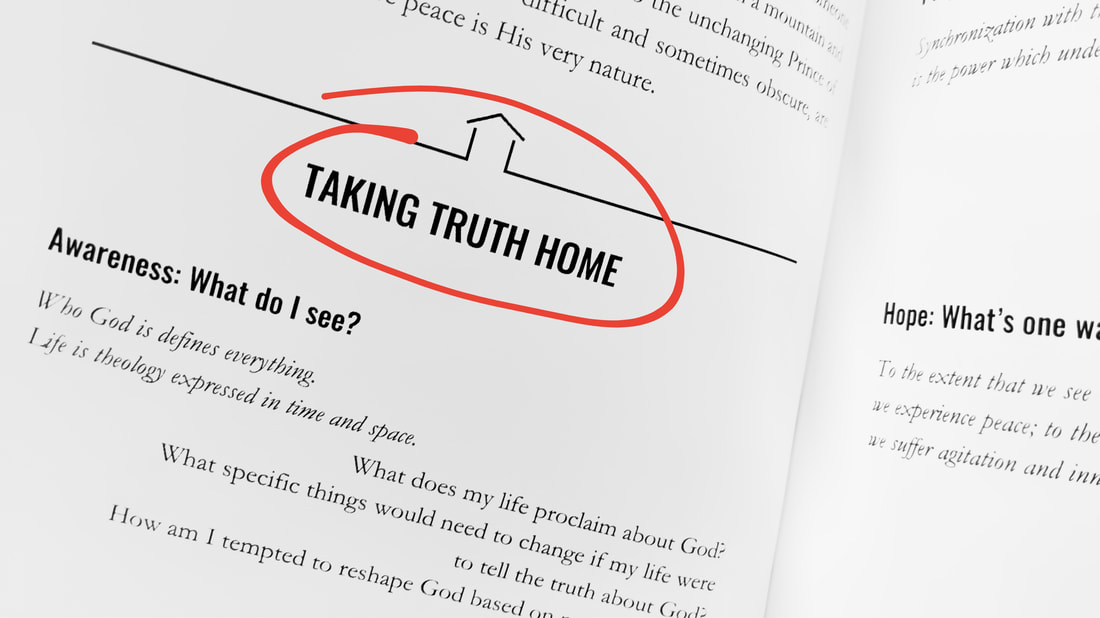
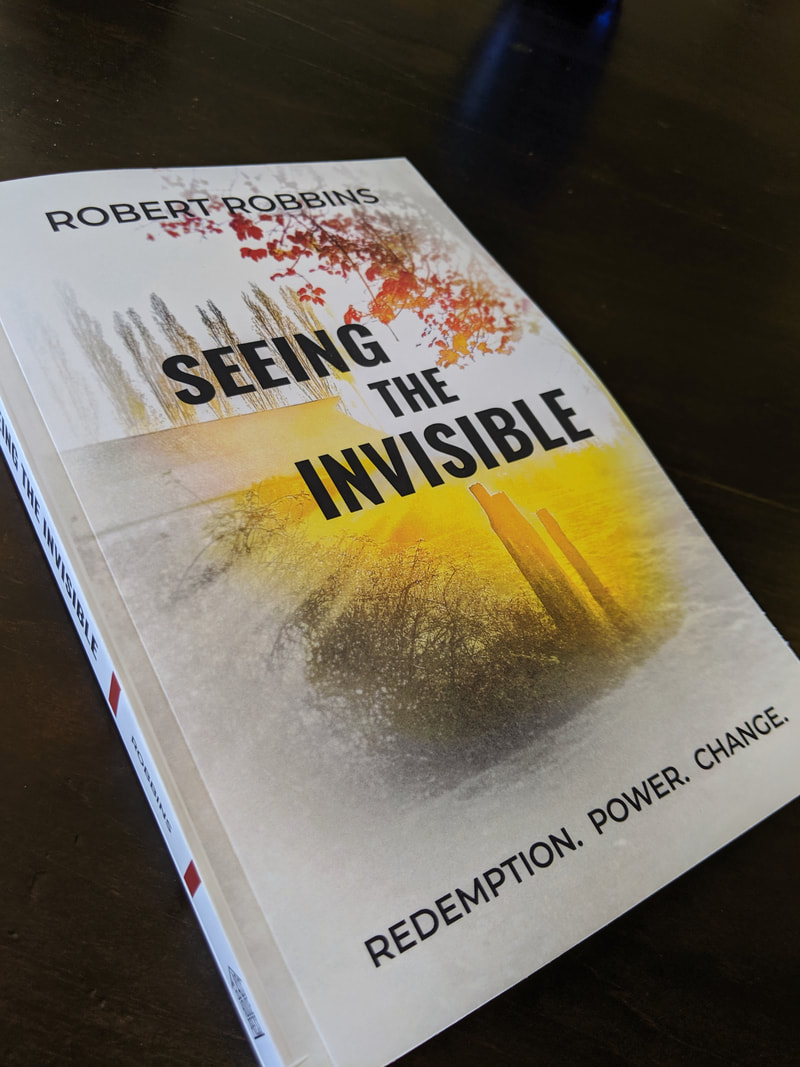
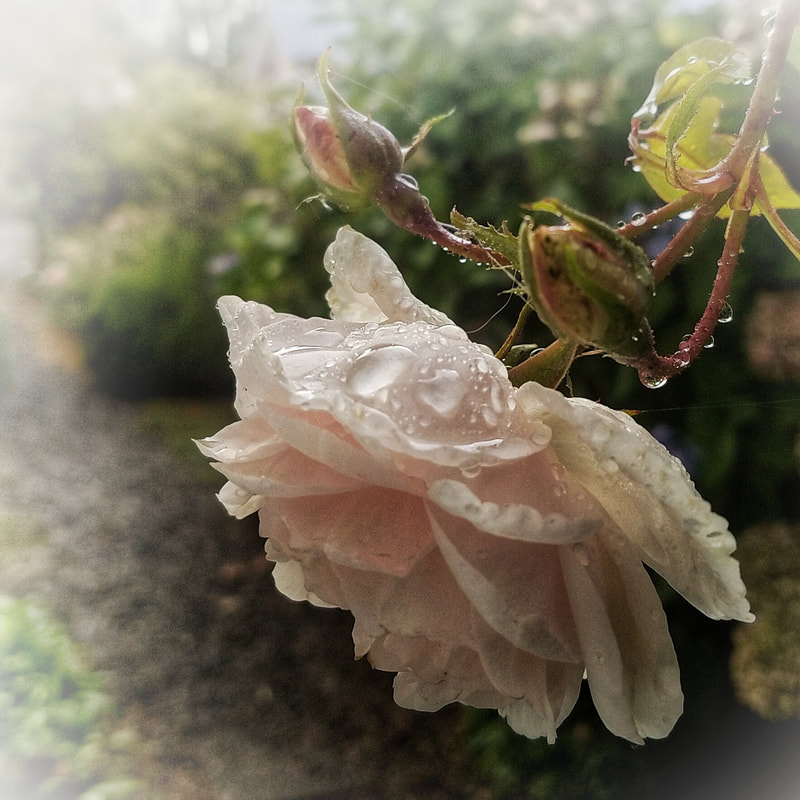
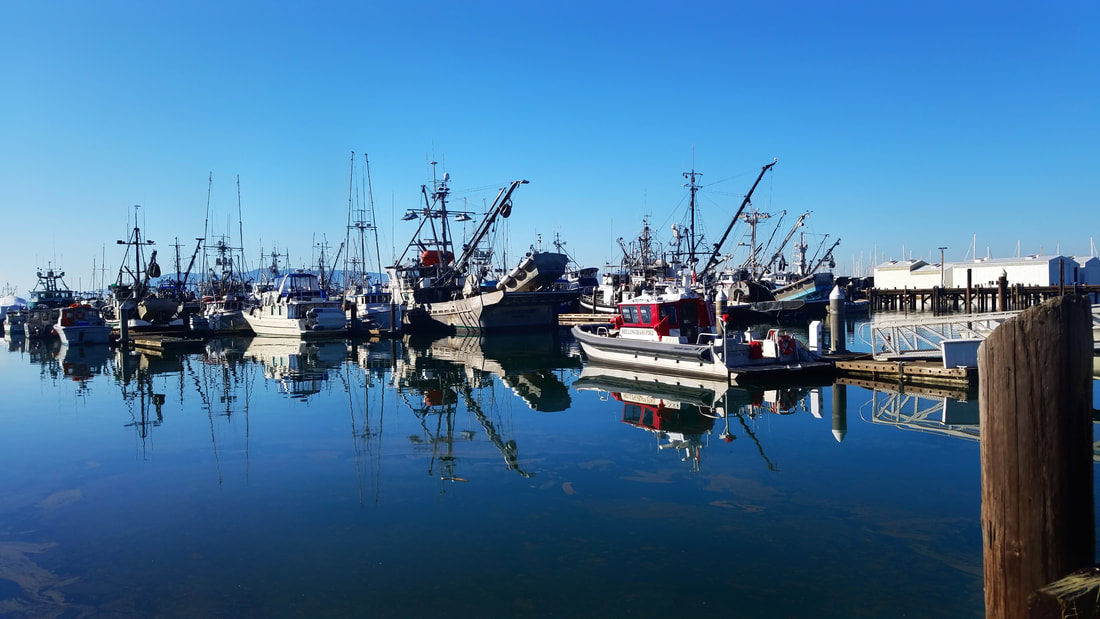
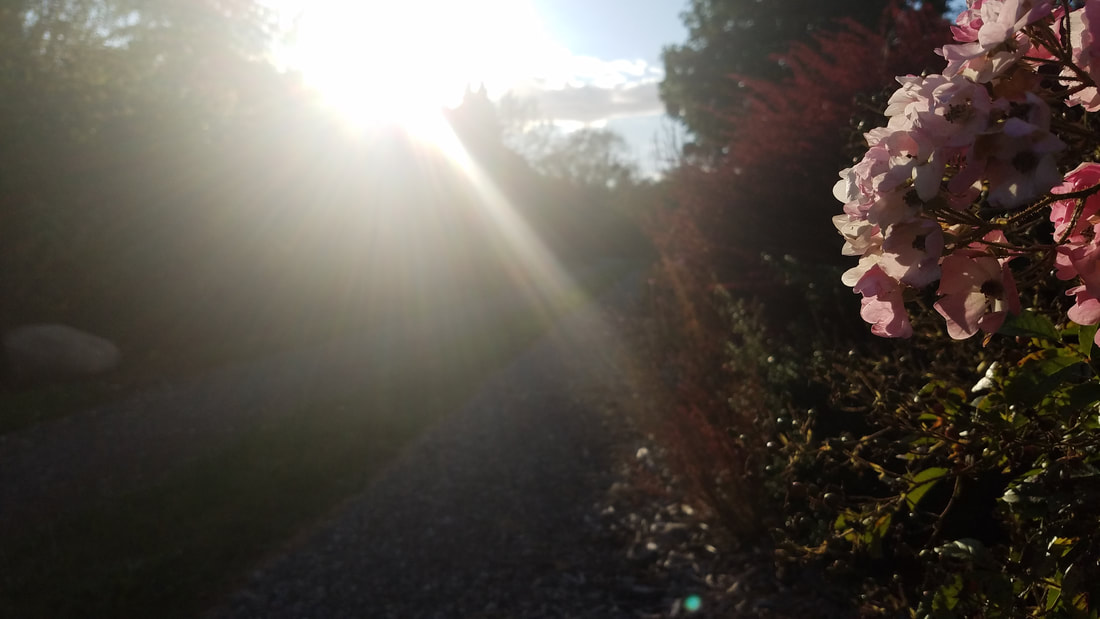


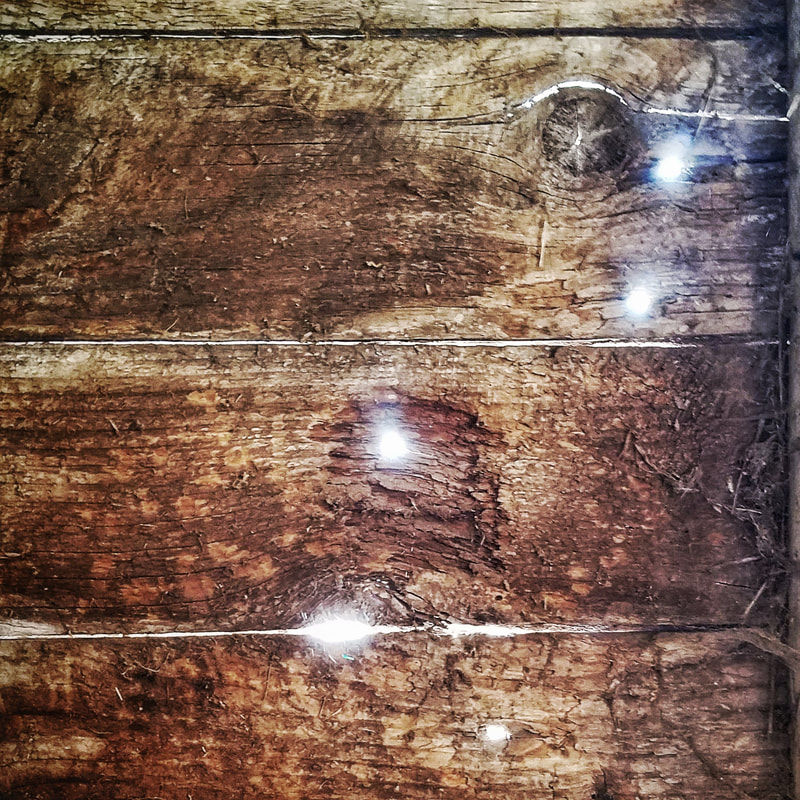
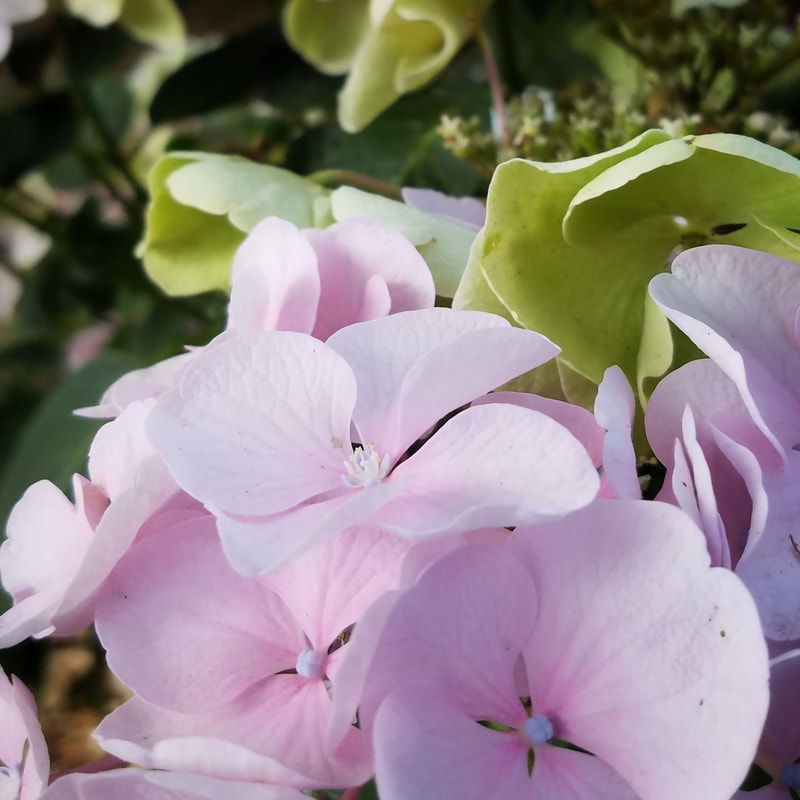
 RSS Feed
RSS Feed